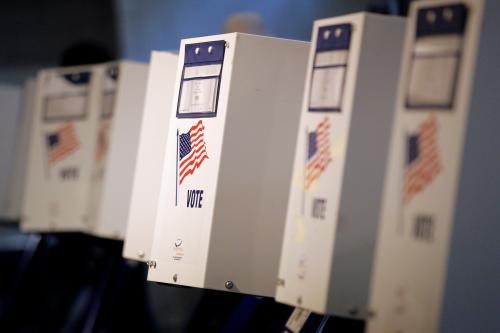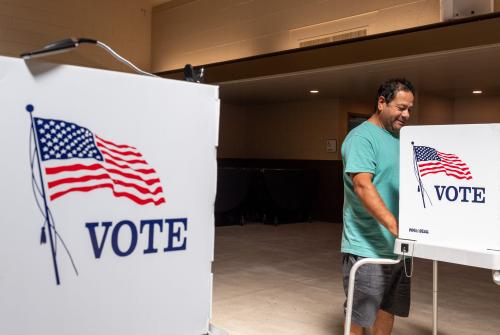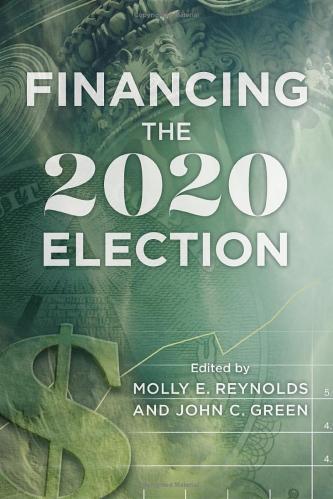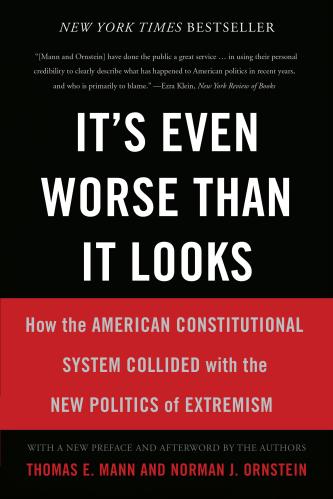In 2018, new progressive challengers such as Alexandria Ocasio-Cortez (N.Y.-14) and Ayanna Pressley (Mass.-07) made headlines when they defeated Democratic incumbents in hard-fought primaries. Marie Newman’s March 17 victory against incumbent Democrat Dan Lipinski in Illinois’s congressional primary was a welcomed relief for progressives who have been disappointed by Sanders’s and other candidates’ performances in the preceding primary contests.
One group who supported the victories of Ocasio-Cortez, Pressley, and Newman is Justice Democrats, a progressive political action committee. In 2018, Justice Democrats endorsed 65 non-incumbent candidates in House races. Most of them did not mount liberal primary challenges, but rather ran to fill open (solidly Democratic) seats or against Republican incumbents. Justice Democrats also endorsed three sitting House members, who all won reelection. Overall, twenty-four candidates endorsed by Justice Democrats advanced to the general election, but only seven won in November 2018.
Writing for FixGov about the 2018 congressional primaries, Elaine Kamarck noted that among non-incumbent Democrats, establishment candidates won more of their primaries than progressives did. In short: the progressive record in 2018 was “good but not great.” But before Newman’s win, 2020 did not even look good for progressives.
Of the eight non-incumbent candidates Justice Democrats has endorsed in 2020 House races, there are three whose primary contests have occurred: Jessica Cisneros in Texas-28, Georgette Gomez in Calif.-53, and Marie Newman in Ill.-03. Only Newman placed first against her opponents.
Jessica Cisneros, a 26-year-old immigration attorney challenged Rep. Henry Cuellar, the eight-term Blue Dog incumbent from South Texas. Cuellar is one of the few anti-abortion Democrats in the House and has an A rating from the National Rifle Association. His opponent dubbed him “Trump’s favorite Democrat” and publicized that he voted with the president nearly 70 percent of the time in the last Congress.
Cisneros supported Medicare for All, the Green New Deal, and gun control measures. In addition to the endorsement from Justice Democrats, she racked up high-profile support from Sens. Bernie Sanders and Elizabeth Warren, Reps. Pressley and Ocasio-Cortez, as well as EMILY’s List, the Sunrise Movement, and many unions. Despite this, Cisneros lost to Cuellar by fewer than 3,000 votes—about 3.6 percentage points.
Another Justice Democrat, San Diego City Council President Georgette Gomez, ran behind former Hillary Clinton campaign advisor Sara Jacobs by about 17,000 votes in the race to fill the seat of Rep. Susan Davis (Calif.-53), who is retiring after this term.
Gomez, too, had the endorsements of Rep. Ocasio-Cortez and Sen. Sanders. But her opponent ran a liberal campaign promoting universal health coverage, gun control, and immigration reform. One important difference between Gomez and Jacobs was their campaign financing: Jacobs, the granddaughter of the founder of a multibillion-dollar telecommunications equipment company, self-funded much of her nearly $2 million campaign. She also received support from a Super PAC underwritten by her grandparents. Gomez, who relied on her community organizing and local government experience, spent less than $600,000 campaigning according to FEC data as of February 12.
Gomez secured only 19 percent of the vote to Jacobs’s 30 percent as of this writing, but California’s jungle primary system allows them both to advance to the general election regardless of party. However, the congressional primary results suggest that the Justice Democrats candidate is unlikely to secure a majority of the district in November.
In contrast, Marie Newman’s victory over Rep. Dan Lipinski in the Illinois congressional primary on March 17 was a win for progressives—and the first for Justice Democrats this primary season. Rep. Lipinski’s opposition to abortion and marriage equality put him to the right of most centrist Democrats. He has represented Illinois’s 3rd congressional district since 2005, when he took over the seat after his father’s 23-year tenure in the House.
While Lipinski and Newman’s contest could be a ray of hope for upcoming progressive downballot races, there are some important caveats. First, Newman was able to build on the progressive momentum she rallied in her 2018 primary challenge to Lipinski. But importantly, she actually won with a smaller share of the vote this year than she earned in 2018. Newman won 47.3 percent against Lipinski’s 44.6 percent this March, but in 2018 they held 48.8 percent and 51.1 percent respectively. This is attributed to Lipinski and Newman’s two new challengers who together secured 8.1 percent—a small share of the vote, but enough to cut into the more popular candidates’ margins. Newman represents a win for Justice Democrats, but it may not be one that is easy to replicate.
There are at least five more congressional primaries Justice Democrats is focused on: Nebraska’s 2nd district (currently held by Republican Don Bacon); Missouri’s 1st district; New York’s 16th district; Ohio’s 3rd congressional district; and Massachusetts’s 1st district. Kara Eastman in Nebraska and Cori Bush in Missouri are repeat challengers, but they have larger margins to close than Newman overcame.
The remaining candidates all face uphill battles against Democratic incumbents in their primaries, which will occur between June and September. Justice Democrats recruited Jamaal Bowman for a difficult challenge to Rep. Eliot Engel (N.Y.-16), who has served for over 20 years. Morgan Harper will face off with four-term incumbent Joyce Beatty (Ohio-03). Alex Morse aims to unseat Rep. Richard Neal (Mass.-01), whose initial refusal to subpoena President Trump’s tax returns in 2019 may make his seat more vulnerable than it was in 2018.
Progressives’ underperformance in the 2020 presidential race and early congressional primaries could validate arguments like those from Cuellar’s neighboring representative Vicente Gonzalez (Texas-15) who called primary challenges like Cisneros’s a “monumental waste of resources that could have been used to keep more blue seats—and gain some.”
Most congressional primary contests occur in the summer and some of those scheduled to take place earlier have been postponed in the face of the COVID-19 pandemic, which means it will be at least a few months before Democrats can determine whether Newman’s victory was the exception to an establishment trend or is indicative of a broader return on progressive investment.
Note: The original version of this post stated that Jessica Cisneros was endorsed by Rep. Ilhan Omar, but as of publication that has not taken place.
The Brookings Institution is committed to quality, independence, and impact.
We are supported by a diverse array of funders. In line with our values and policies, each Brookings publication represents the sole views of its author(s).











Commentary
How have progressives fared in the 2020 congressional primaries?
April 7, 2020